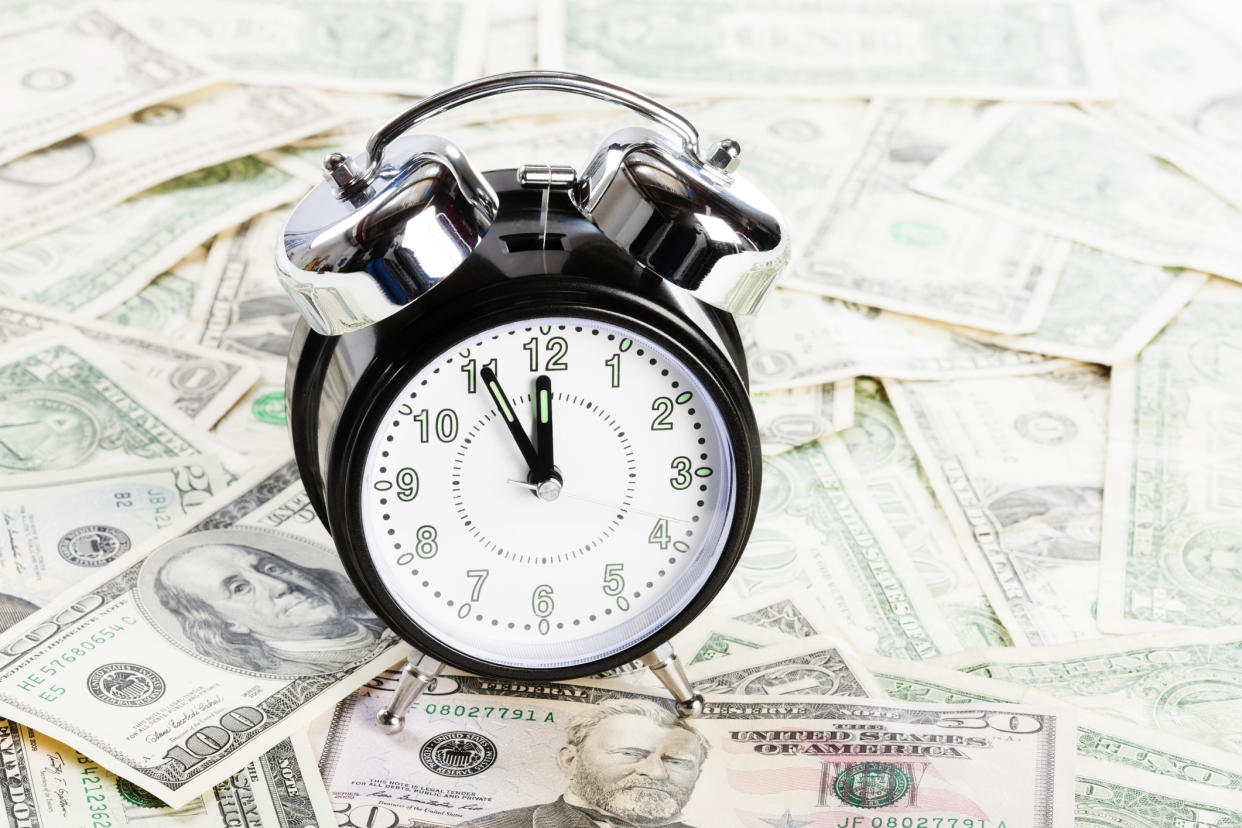Should you use 'Buy now, pay later'?

In recent years, "buy now, pay later" loans have "soared in popularity because of high prices and interest rates," reported The New York Times. These loans, which allow consumers to "pay for purchases in installments," are "often interest-free" and "aren't routinely reported to credit bureaus," explains the Times.
While this might sound like an easy way to make a purchase without forking over the full amount at once, these loans aren't risk-free. In fact, per Experian, "using buy now, pay later services can open users up to financial risks that may not be worth the convenience in the end."
How do buy now, pay later loans work?
As Investopedia explains it, buy now, pay later (BNPL) is "a type of short-term financing that allows consumers to make purchases and pay for them over time, usually with no interest." With BNPL, you'll "make a small down payment, such as 25% of the overall purchase amount," when you make the purchase, and then you'll "pay off the remaining amount in a series of interest-free installments, usually over a few weeks or months," explains Investopedia. These payments can be taken from your debit card, credit card, or bank account, or you may have the option of using a check or bank transfer.
Often, you'll see the option for a buy now, pay later plan offered when you go to check out, though you may also be able to use a BNPL app or access options through your credit card, per Investopedia. If you decide to take advantage, you'll need to complete a brief application, which usually requires "information like your name, address, email address, date of birth, phone number and Social Security number," as well as details for a payment method, per Nerdwallet.
You'll find out "in a matter of seconds" if you're approved, reports Nerdwallet, and no hard credit check is involved, meaning the application won't impact your credit score.
What are the risks of using buy now, pay later?
Here are some of the major risks of BNPL worth noting:
Looser regulation and varying repayment terms: Before you enter a BNPL agreement, it's crucial to review the repayment terms. Per Investopedia, "BNPL financing is not as closely regulated as credit cards are," and "terms can vary significantly." For instance, some companies offer only a month to repay the loan, while others may give you six months or longer.
Interest, fees, and potential credit impacts: While BNPL plans don't usually charge interest, according to Nerdwallet, "longer-term BNPL plans, which are becoming more common, may charge an annual percentage rate up to 36%." If you miss a payment, you may face "late fees or interest on your unpaid balance," according to Experian. And "should you stop making payments altogether, buy now, pay later services can also turn your account over to a collection agency," which means "your credit score could also be put in danger," Experian notes.
Possibly difficult returns: Using BNPL can make returns more challenging. For instance, in one example from Investopedia, "a merchant may allow you to return the item, but you might not be able to cancel the buy-now-pay-later arrangement until you can provide proof that the return has been accepted and processed."
Financial overextension: Another major risk of buy now, pay later is that it can encourage overspending. As the Times reports, "such loans may be encouraging younger and lower-income Americans to take on too much debt."
Is buy now, pay later worth using?
According to Experian, "whether or not you should use buy now, pay later depends on your personal financial situation and responsibility."
Before moving forward with BNPL, consider whether you'll be able to make payments on time and if you can keep your bank account funded to avoid overdraft fees when automatic payments occur. Though you're only paying a portion of the cost upfront, it's also important to assess whether you can really afford the full amount within your existing budget.
And even if your budget can handle the payments, remember that BNPL still involves taking on debt. Per Nerdwallet, "it's rarely a good idea to go into debt for a nonessential purchase," so instead consider reserving BNPL "only for necessary expenses, like a mattress for your home or a computer for work or school."

